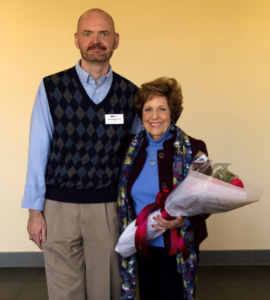SoTL Group

Scholarship of Teaching and Learning
 WHAT IS THE SCHOLARSHIP OF TEACHING AND LEARNING?
WHAT IS THE SCHOLARSHIP OF TEACHING AND LEARNING?
The Finch Center for Teaching and Learning (FCTL) at Maryville University was founded in 2004 by Mary Ellen Finch, who was then Vice President for Faculty Development. Soon thereafter, in Fall, 2005, The Scholarship of Teaching and Learning (SoTL) Seminar Program was initiated as a component of the Center by Marilyn Cohn, who then held the position of Distinguished Visiting Professor of Education.
Although the idea was not an entirely new one (McKinney, 2007), the concept of a Scholarship of Teaching and Learning was popularized by Ernest L. Boyer in his seminal book, Scholarship Reconsidered: Priorities of the Professoriate (1990). Boyer, who served as the President of the Carnegie Foundation for the Advancement of Teaching from 1979 to 1995 advocated in articulate fashion that the idea of scholarship in higher education needed to be broadened to include teaching as well as the dimensions of discovery, integration (later changed to engagement), and application. While Boyer made a strong case for a “scholarship of teaching”, he never clearly defined the term. There were many questions as to exactly what a scholarship of teaching looked like and how it might differ from scholarly teaching.
It was left, therefore, to Lee Shulman, who followed him as President of the Carnegie Foundation and to Lee’s colleagues, particularly, Mary Huber and Pat Hutchings, to clarify and advance the concept. In 1998, Shulman announced the formation of the Carnegie Academy for the Scholarship of Teaching and Learning (CASTL) program and it became the centerpiece of the Foundation’s work for the next decade. In 1999, Pat Hutchings (Senior Scholar at the Foundation) and Lee Shulman made the following distinctions in an article for Change Magazine:
Excellent Teaching: Involves teaching well, engaging students, and fostering important forms of student learning.
Scholarly Teaching: Entails, as well, certain practices of classroom assessment and evidence gathering, is informed not only by the latest ideas in the field but by current ideas about teaching the field, and invites peer collaboration and review.
The Scholarship of Teaching (and Learning): “It requires a kind of “going meta” in which faculty frame and systematically investigate questions related to student learning—the conditions under which it occurs, what it looks like, how to deepen it, and so forth—and do so with an eye not only to improving their own classroom but to advancing practice beyond it.”
In addition, Boyer and Hutchins maintained that SoTL could be characterized as follows:
1. Being public
2. Open to critique and evaluation by peers
3. In a form that others can build on
At Maryville, our Scholarship of Teaching and Learning Seminar Program incorporates these distinctions and characteristics and embraces the later definition by Huber and Hutchings (2005): “It means viewing the work of the classroom as a site for inquiry, asking and answering questions about students’ learning in ways that can improve one’s own classroom and also advance the larger profession of teaching.” Since this definition does not specify any particular type of research methods, Marilyn Cohn, facilitator of the seminar program, has chosen to operationalize the SoTL approach using the methods of action research. (Carr & Kemmis, 1986; Elliott, 1991; Cohn, 1994; Stringer 2008; Norton, 2009)
Contact Mike Kiener for more information.
THE MARILYN COHN SCHOLARSHIP OF TEACHING AND LEARNING SEMINAR